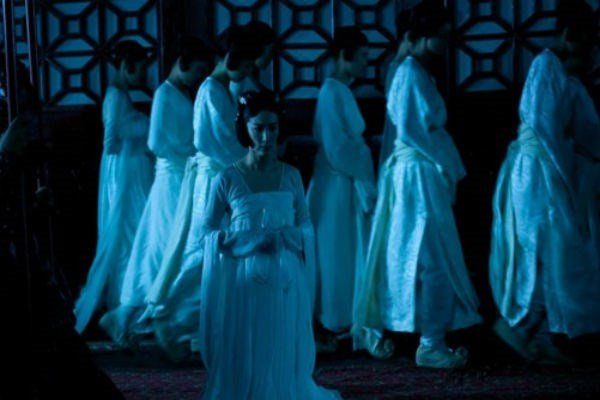Not a secluded palace, not an exile; just mentioning these two terms, many palace maids would flee, even going to the extent of disabling themselves to avoid being sent there.
In ancient times, there were many bizarre and terrifying practices within the palace, often referred to as “tomb guardianship.”

The duties of palace maids here include lighting lamps and cleaning tombs… living each day in solitude, with no future. (Illustrative photo).
After the emperor passed away, a group of people was often dispatched to perform the duties of “tomb guardianship,” also known as tending to the tombs. This group included not only guards but also palace maids and favored consorts who had been neglected by the emperor during his lifetime.
These individuals wore white garments, did not adorn themselves with jewelry, and covered their heads with white cloth. Once the emperor’s coffin was buried in the tomb, the stone slab sealing the tomb would fall, burying the entire “tomb guardianship” team along with the deceased.
The custom of “tomb guardianship” actually originated during the Western Han Dynasty. Historical records indicate that while alive, Liu Bang was a lecherous man, always surrounded by beautiful women.
Upon Liu Bang’s death, power in the court fell into the hands of Empress Lü (Lü Zhi), who ruthlessly murdered Lady Qi, the woman Liu Bang cherished most in life.
Furthermore, not wanting to see Liu Bang’s harem, she arranged for several palace maids and consorts who had served Liu Bang to go to “tomb guardianship.”
From then on, a precedent was set: aside from the emperor, when the empress dowager or empress passed away, a certain number of palace maids were designated for “tomb guardianship” to honor the marital bond between husband and wife, ruler and subject. These palace maids and consorts were referred to as “noble ladies.
Their duties included lighting lamps, cleaning the tomb, and regularly performing dances and songs in front of the tomb.
Day by day, they lived in solitude, with no future, aware that their dull, lonely lives could end at any moment.
This meant that the entire lives of palace maids and consorts were buried in loneliness and desolation, with no chance of escape until death.
For this reason, many palace maids and consorts lived in fear of being included in the list for “tomb guardianship.” Some even rendered themselves disabled or chose to die rather than endure this terrifying and torturous job.





















































